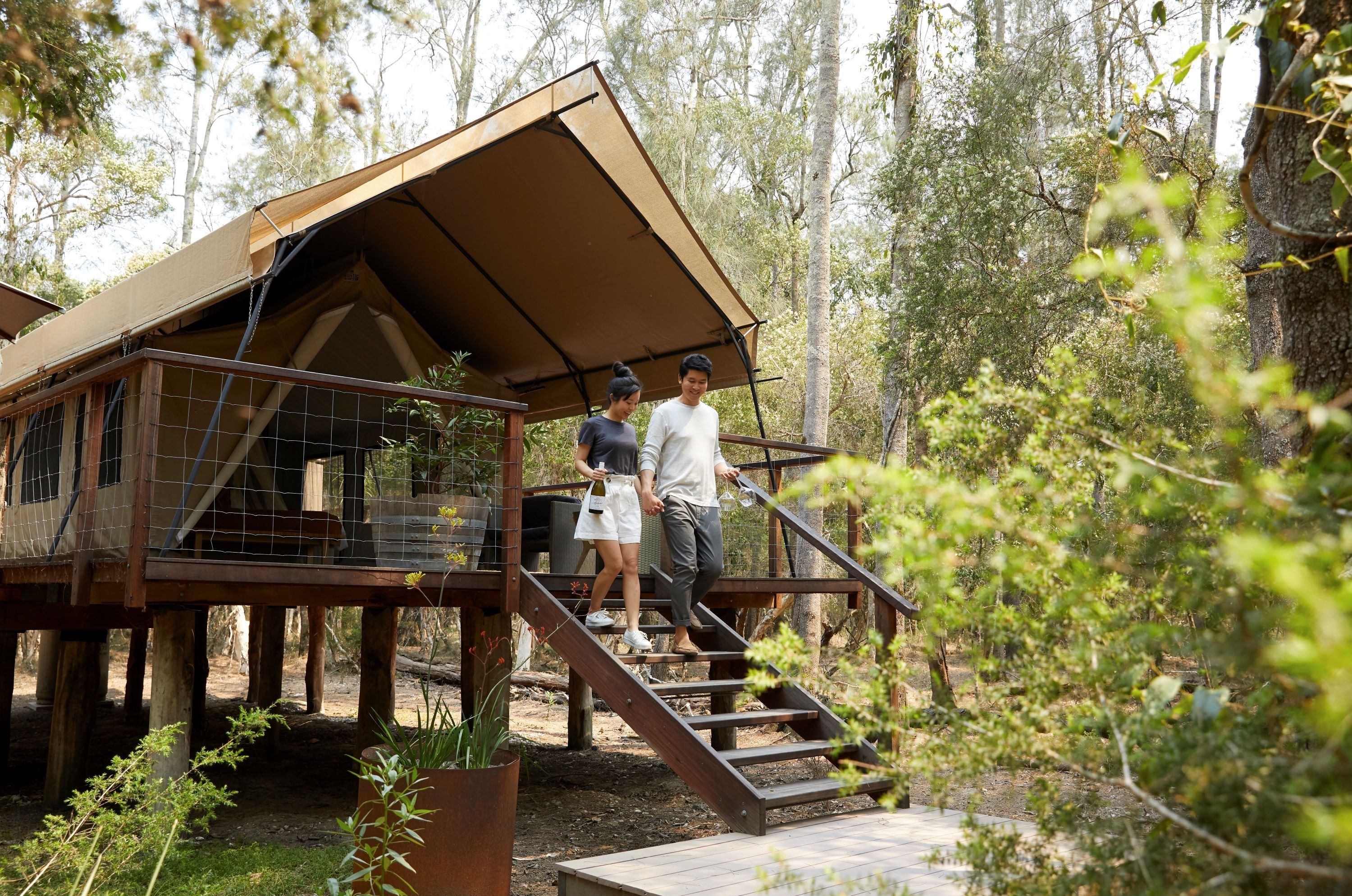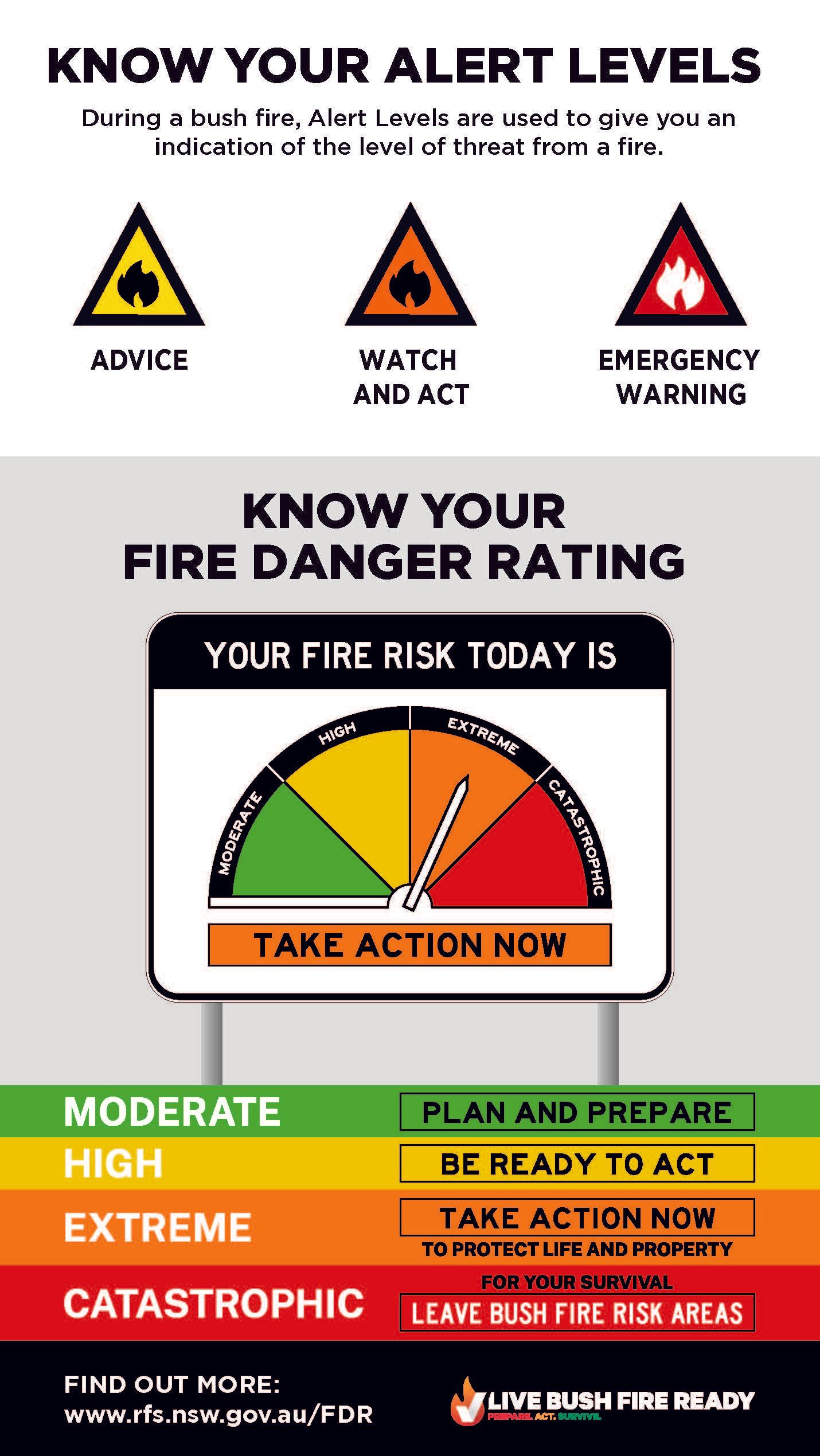Help protect your visitor economy business from the impacts of bushfires, floods and other natural disasters by being prepared. Have a thorough plan that you can effectively communicate with your employees, visitors and distributors, so you are ready to act in the event of a natural disaster.
Quick tip: Communicate with your visitors
For bookings scheduled during bushfire season, you can share the NSW Rural Fire Service’s tips on Travelling in a Bushfire Area in your booking confirmation details.
Prepare up-to-date safety and evacuation information that you can share with visitors in the event of a bushfire emergency or natural disaster in hard copy and digitally.
Quick tip: Use online booking software to access and manage your booking details
Using cloud-based online booking software to manage all your bookings online enables you to access your guest's information quickly and easily from any device, which is important in the event of an emergency. Find out more about online booking software in the NSW First Guide: Sell Bookable Products Online.
When choosing an online booking system, check what functionality is offered in the event of a natural disaster, such as blocking out availability in an emergency, cancelling or rebooking guests and managing refunds for direct and third-party sales through the software. Review any resources they share ahead of bushfire season.
Quick tip: Ensure you have clear booking terms and conditions
Create or update terms and conditions for your bookings to ensure you have policies and processes in place for cancellations, refunds and postponement or rebooking in the event of a natural disaster.
The Australian Competition and Consumer Commission (ACCC) provides information for travel and accommodation businesses, outlining responsibilities under Australian Consumer Law. See below for their guide and other resources:
- Read the ACCC guide: Travel & accommodation - an industry guide to the Australian Consumer Law.
- Contact NSW Fair Trading on 13 32 20 for information.
- Read the NSW First Program trade terms tips for accommodation, tours and visitor attractions.
If you sell your products and experiences through a third party, such as an online travel agent (OTA) or inbound tour operator (ITO), ensure you have communicated your terms and conditions with them, and that you are aware of any related terms and conditions of theirs.
Quick tip: Prepare to adapt in an emergency
Tour and activity providers may consider preparing a contingency product offering. For example in the event of a bushfire, offering an amended itinerary or alternative activities with a lower bushfire risk. Being prepared with contingency options ahead of time will enable you to quickly pivot your operations where it’s safe to do so – and to update your visitors and distribution partners with full details of these changes.
Ensure that any new or adapted visitor experiences and products have appropriate licenses and permits to operate and are covered by your Public Liability Insurance. For more information, refer to the NSW First Guide: Develop your visitor experience.
Being prepared with contingency options will enable you to quickly pivot your operations.

.jpg?rect=0,150,3000,1688&w=320&h=180&fit=min&auto=format)
.jpg?rect=0,1,1430,2538&w=320&h=568&auto=format)
